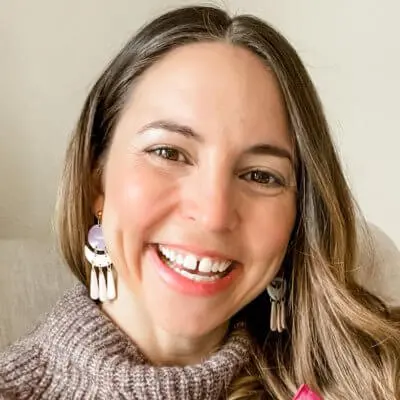Misleading medical advice on TikTok: Separating fact from fiction
Recent Tebra research reveals a startling amount of misleading medical advice on TikTok, raising concerns about the potential impact on healthcare decisions.

Key Takeaways
- On average, 45% of medical advice on TikTok is false or misleading.
- Alternative medicine TikTok advice (67%) is the most likely to be false or misleading, while mental health TikTok advice (31%) is the least likely to be.
- Viral medical TikTok videos (over 5M views) are 14% more likely to contain misleading advice than non-viral videos (under 1M views).
- The following misleading TikTok medical advice is among the most common:
- “Lose 20 pounds in 2 weeks with this one trick.”
- “Getting vaccinated can cause long-term health problems like infertility.”
- “Taking this one supplement every day will solve all your health problems.”
- On average, 75% of medical advice on TikTok is positive, while 19% is negative.
- Nutrition and diet videos are the most likely to be positive (87%), while dysmorphia advice videos are the most likely to be negative (38%).
An analysis of TikTok videos reveals widespread misinformation and the potential risks for viewers relying on this content.
TikTok has quickly become a go-to platform for medical advice, with users sharing everything from fitness tips to home remedies. But with so much information circulating, how reliable is it?
To find out, Tebra analyzed over 5,000 TikTok videos, assessing the accuracy and sentiment of the platform's medical advice. The results show a startling amount of misinformation, raising concerns about the potential impact on healthcare decisions, especially for patients at smaller independent practices that may have fewer resources to dedicate to patient education and combating false claims.
How accurate is medical advice on TikTok?
The growing popularity of using TikTok as a source of medical advice has raised concerns about the accuracy of the information shared. This section explores the reliability of medical content on the platform to show which topics are most prone to misinformation.
Here's how Tebra analyzed TikTok videos to draw these data-backed conclusions:


Misinformation in online medical content can cause people to adopt unsafe practices or avoid seeking proper medical attention. Given that 86% of Americans in the past year have turned to online platforms for medical advice instead of consulting with a healthcare professional, the potential for harm is significant.
On average, 45% of medical advice found on TikTok was identified as false or misleading. Advice related to alternative medicine had the highest rate of inaccuracy, with 67% of content in this category deemed misleading. Women's health and general health topics followed, with 54% of advice in each category containing inaccurate information.
Content related to mental health had the lowest rate of misinformation at 31%. Wellness and self-care videos showed a slightly higher rate of misleading content at 37%, while chronic illness advice saw 39% misinformation. Interestingly, viral medical videos with over 5 million views were 14% more likely to contain misleading advice than those with under 1 million views.
These findings underscore the critical role of healthcare providers in combating misinformation. Independent practices, in particular, may face unique challenges in addressing false medical claims, as they often have limited resources to dedicate to patient education. Open communication and trust between providers and patients are essential in counteracting false claims.
EHR systems in healthcare (electronic health records) can help providers deliver evidence-based care, track patient progress, and build stronger, more trusting relationships — a vital defense against the spread of harmful medical advice online.
Another Tebra study found that the majority of patients believe they get better care from independent providers, with 58% of Gen Z agreeing. Trustworthiness, active listening, and strong communication were ranked as the top qualities that contribute to a strong patient/provider relationship. Independent providers should take this opportunity to ask patients where they are getting their medical advice and debunk any false or misleading information to protect their well-being.
Among the misleading claims on TikTok, certain medical advice appeared more frequently. The following chart details the top false medical claims circulating on the platform and includes a score of how misleading they are and why.

The most common inaccurate health information on TikTok was about weight loss, vaccinations, and miracle cures. The top 3 misleading health claims were:
- "Lose 20 pounds in 2 weeks with this one trick."
- "Getting vaccinated can cause long-term health problems like infertility."
- "Taking this one supplement every day will solve all your health problems."
As Kevin Marasco, Tebra's Chief Growth Officer, emphasized, "While TikTok and other social media platforms can offer quick insights into health topics, it's crucial to approach medical advice with caution. Not all content is created by qualified professionals, and misinformation spreads easily. Before following any health recommendations, always cross-check with credible sources or consult a healthcare provider. Remember, personalized medical advice should come from experts, not viral trends."
How positive is medical advice on TikTok?
When it comes to medical advice on TikTok, it's not just about accuracy — tone matters too. Positive content may encourage healthier habits, but negative or misleading information could worsen viewers' health challenges.

Tebra's analysis found that most medical advice on TikTok tends to be positive, with 75% of the content carrying an encouraging tone, 19% taking a negative approach, and 6% remaining neutral. Nutrition and diet videos were the most positive, with 87% promoting healthy habits and well-being.
Conversely, body dysmorphia advice videos were more likely to be negative, with 38% of them taking a critical or harmful approach. The tone of these videos could be especially impactful on young users' health decisions: A previous Tebra study determined that 1 in 4 Gen Zers have turned to TikTok for medical advice instead of consulting a doctor.
Building a relationship of trust through positive, open communication is vital, particularly when countering negative or harmful medical advice. Independent providers can ask patients if they have any questions about medical advice they've received and provide clear, factual corrections when necessary can help improve outcomes and counter misinformation.
Which TikTok medical advice is easiest to follow?
How easy the advice is to follow can make all the difference in whether people put it into practice. This section looks at how practical TikTok's medical advice is and which categories share the most positive tips.

Each TikTok video was assessed to determine how practical its medical advice would be to implement. The evaluation considered both the complexity of the advice and the effort required to follow it, allowing us to categorize the content into 3 levels: easy, moderately challenging, and difficult.
Nearly half of the medical advice on TikTok (49%) was considered easy to implement, with 47% categorized as moderately challenging and 4% classified as difficult. Accurate medical advice on TikTok was 26% more likely to be easy to follow than misleading advice.
Nutrition and diet advice was the most actionable, with 59% of recommendations being easy to follow. In contrast, physical fitness advice ranked lowest in accessibility, with only 39% considered easy to implement.
Our analysis revealed that sexual and reproductive health advice was the least likely to be difficult to implement, with only 1% classified as hard to implement. Mental health advice, on the other hand, revealed that 8% of mental health content was difficult to implement, potentially contributing to the concerning trend of mental health self-diagnosis on social media.
Partnering with trusted providers for accurate medical advice
While TikTok offers a wealth of medical advice, much of it can be misleading. And with 17% of Americans trusting TikTok as much as doctors and 7% trusting it more, providers will likely have an important opportunity to step in and help patients navigate through the noise.
Open communication with a trusted healthcare provider can help mitigate the risks posed by misinformation. Independent practices that emphasize personalized care and use tools like electronic health records software (EHR) to maintain accurate patient data can offer reliable, evidence-based advice tailored to each individual.
By fostering trust and staying proactive, independent providers can help debunk false claims and ensure their patients feel informed, confident, and empowered in their healthcare decisions.
Methodology
For this study, Tebra scraped over 5,000 TikToks across over 40 hashtags to analyze the sentiment and accuracy of medical advice on the platform. For each TikTok scrape, Tebra transcribed the voiceover and ran it through a custom Open AI script to determine the sentiment of each video, how misleading the advice was on a scale from 0 to 100, and how difficult it would be to implement the advice. All videos with a misleading score higher than 50 were classified as misleading.
About Tebra
In 2021, with a combined mission to unlock better healthcare, Kareo and PatientPop joined forces to form Tebra — a complete practice automation solution for independent healthcare providers. With an all-in-one, purpose-built platform to drive practice success and modernize every step of the patient journey, Tebra provides digital tools and support to attract new patients, deliver modern care, get paid quickly, and operate efficiently. To learn more about how Tebra is committed to improving patients' and providers' success and well-being, visit www.tebra.com.
Fair use statement
You may reuse these data in a noncommercial context as long as you acknowledge this page with a link.
Subscribe to The Intake:
A weekly check-up for your independent practice

Suggested for you
Get expert tips, guides, and valuable insights for your healthcare practice








